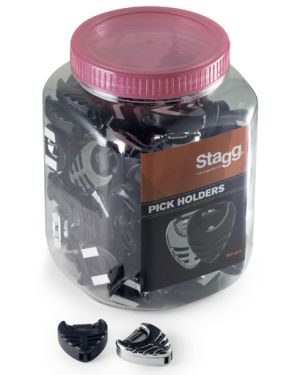
-
![Black Rat PHB100 Pick Holder in Black / Chrome (Each)]() In Stock
In Stock -
![Jim Dunlop 5000 Pick Holder]() In Stock
In Stock -
![Fender Tom DeLonge 351 Celluloid Picks (6)]() In Stock
In Stock -
![Dunlop Tortex Standard Green 0.88mm Players (12 Pack)]() In Stock
In Stock -
![Taylor Darktone 351 Guitar Picks Blue Swirl, 1.25mm (6-Pack)]() In Stock
In Stock -
![Taylor Darktone 351 Guitar Picks Abalone, 1.25mm (6-Pack)]() In Stock
In Stock -
Best Seller
![Dunlop Variety Light Medium Player (12 Pack)]() In Stock
In Stock -
![Taylor Premium 351 Guitar Picks Black Onyx, 1.25mm (6-Pack)]() In Stock
In Stock -
Best Seller
![Dunlop Tortex Standard Yellow 0.73mm Players (12 Pack)]() In Stock
In Stock -
![Taylor Thermex Ultra 351 Guitar Picks Black Onyx, 1.0mm (6-Pack)]() In Stock
In Stock -
![Taylor Darktone 351 Guitar Picks Blue Swirl, 1.0mm (6-Pack)]() In Stock
In Stock -
![Taylor 351 Guitar Picks Smoke Grey Taylex 1.25mm (6-Pack)]() In Stock
In Stock -
Best Seller
![Dunlop Variety Medium Heavy Player (12 Pack)]() In Stock
In Stock -
Best Seller
![Dunlop Tortex Standard Orange 0.60mm Players (12 Pack)]() In Stock
In Stock -
Best Seller
![Dunlop Variety Acoustic Player (12 Pack)]() In Stock
In Stock -
Best Seller
![Dunlop Tortex Standard Red 0.50mm Players (12 Pack)]() In Stock
In Stock -
Best Seller
![Dunlop Nylon Standard 0.60mm Players (12 Pack)]() In Stock
In Stock -
![Stagg PHB-100 BK/CR Box of 100 pick Holders Black & Chrome]() In Stock
In Stock -
Best Seller
![Dunlop Nylon Standard 0.73mm Players (12 Pack)]() In Stock
In Stock -
![Dunlop Nylon Jazz III Red 1.38mm Players (6 Pack)]() In Stock
In Stock -
Best Seller
![Dunlop Tortex Standard Purple 1.14mm Players (12 Pack)]() In Stock
In Stock -
![Dunlop Nylon Standard 0.46mm Players (12 Pack)]() In Stock
In Stock -
![Dunlop Nylon Standard 0.88mm Players (12 Pack)]() In Stock
In Stock -
![Taylor Celluloid 351 Medium Guitar Picks, 0.71mm Tortoise Shell (12 Pack)]() In Stock
In Stock
FAQs
-
What is the proper name for a guitar pick?
A plectrum is a small flat tool used to pluck or strum a stringed instrument. For hand-held instruments such as guitars and mandolins, the plectrum is often called a pick and is a separate tool held in the player's hand.
-
Why do guitarists use picks?
Guitar Picks have obvious advantages – they help increase your playing speed, produce a clear, defined tone and increase your volume considerably, which is good for everything from strumming around a campfire with some mates to playing a live solo!
-
Can I play guitar without pick?
One of the most valuable techniques you can develop on the guitar is the ability to play without a pick - There are a lot of different approaches you can take and it's important to keep in mind that there isn't necessarily a right or wrong approach here.
-
Should I play electric guitar with a pick?
Anybody who plays the steel string guitar, whether electric or acoustic, should learn to play with a pick first. Picks are useful for playing lead guitar and melodic passages as they allow the player to attack the notes more dexterously than with fingers



























